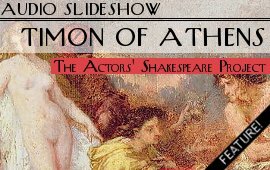 If BSO tickets or the MFA’s are draining your entertainment budget, Boston’s gamut of free lectures, often followed by receptions with free food and even a little free booze, offer engaging and educational relief. The MFA’s may fetch $30+ for a ticket, but Boston’s universities rarely charge even a nominal sum. Because of their prestige and wealth, institutions like Harvard and MIT attract distinguished speakers on the national and international lecture circuits and play long term host with innumerable writer, artist, faculty, fellow, or scholar in-residence programs, where public lectures are de rigueur.
If BSO tickets or the MFA’s are draining your entertainment budget, Boston’s gamut of free lectures, often followed by receptions with free food and even a little free booze, offer engaging and educational relief. The MFA’s may fetch $30+ for a ticket, but Boston’s universities rarely charge even a nominal sum. Because of their prestige and wealth, institutions like Harvard and MIT attract distinguished speakers on the national and international lecture circuits and play long term host with innumerable writer, artist, faculty, fellow, or scholar in-residence programs, where public lectures are de rigueur.
The Fluxus Manifesto
Tuesday, , one of the more indelible names associated with the , gave a talk at Radcliffe (, she ). Fluxus begin in New York in the sixties and was immensely influential on performance and mixed media art. It absorbed a lot of John Cage’s ideas about indeterminacy in performance and was really an exciting and iconoclastic thing in the sixties that cemented the careers and styles of many of the young artists associated with it. Although Knowles had some cool slides to show, Fluxus didn’t seem all too radical Tuesday afternoon in the posh setting provides. Maybe I’m just not that hip, but I’ve found reading about Fluxus more exciting than I found it Tuesday, so here’s something to look at if you’re so inclined.
Julia Robinson, “The Sculpture of Indeterminacy: Alison Knowles’s Beans and Variations,” Art Journal (winter 2004): 97-115 (11.5 MB PDF)
Tuesday night the Coolidge showed Victor Fleming’s as part of their series. Another great freebie for Coolidge members. MIT Museum director John Durant gave a great pre-movie talk about how Victorian medicine, and later Freud, informed the novella and the film adaptations. A perspective drawn from the history of science offers a great context for Jekyll and Hyde–the black market dealings in human cadavers that Robert Louis Stevenson grew up among in Edinburgh, Darwin’s idea of the descent of man from beast, and early psychological theories of the two-sided brain manifesting itself with dual personalities. And later, substantially informing this film, Freud’s theory of the Id. Spencer Tracy’s Hyde chief malignity is his (implied) sexual violence towards Ingrid Bergman, his ‘evil’ unchecked masochistic libido. American Beauty screens December 7th, with a talk by Daniel Gilbert on happiness.
*******************************************************
Here are a few upcoming events of note.
John Picker, author of and in Harvard University Press’ recent tome A New Literary History of America, is delivering something called at MIT. I have no idea, but that only makes it more appealing.
Oct. 22, 5:00-7:00 p.m., MIT
The Norton Lectures by Orhan Pamuk continue through November 3rd.
4:00 p.m., Harvard’s Sanders Theater
Oct. 26, Museum and Novels
Nov. 3, The Center
, United States Secretary of Housing and Urban Development, .
Oct. 26, 6:00-7:00 p.m., Piper Auditorium
Harvard’s Carpenter Center current exhibition has a bunch of associated events.
The new exhibition at MIT’s Tobias Putrih & MOS: Without Out opens Oct. 23 and is also
Lecture 1: Becoming Human Is Not That Easy, Nov. 4, 4:30 p.m., Lowell Lecture Hall
Lecture 2: Ironic Soul, Nov. 5, 4:30 p.m., Lowell Lecture Hall
Nov. 12, 5:00-7:00 p.m., MIT
Boston’s own joins to discuss the changing face of arts journalism.
For more, keep an eye on and . And check the links in the appendix section of this site.





